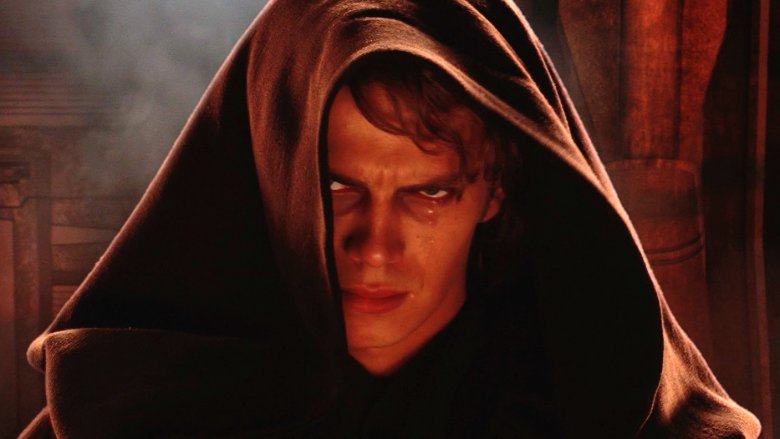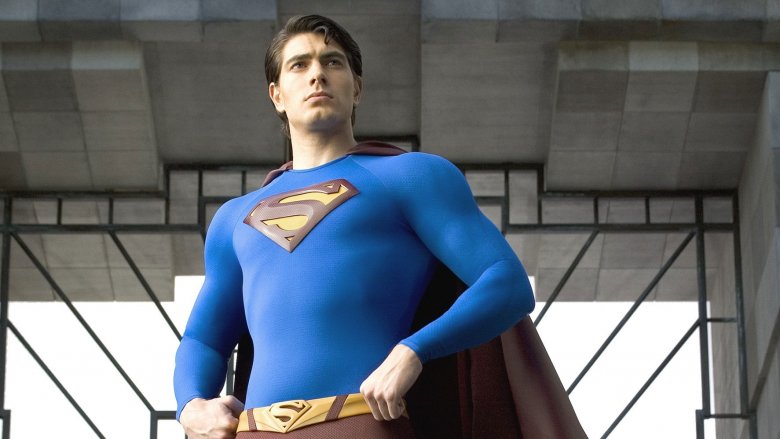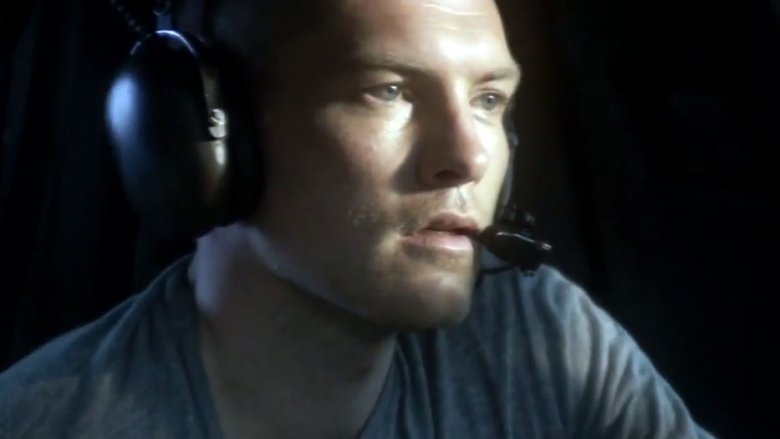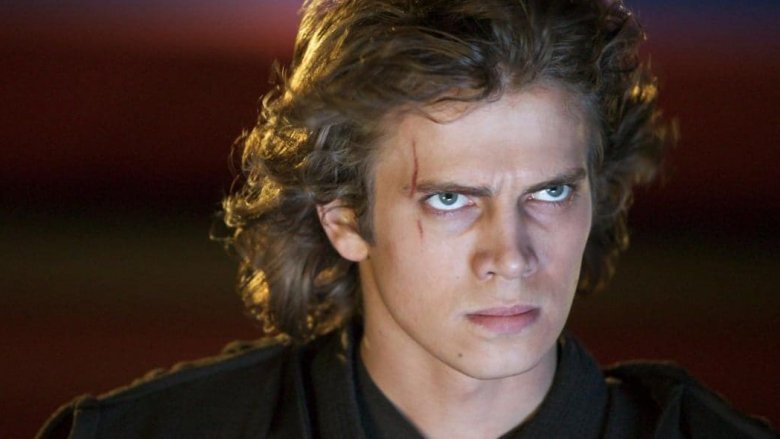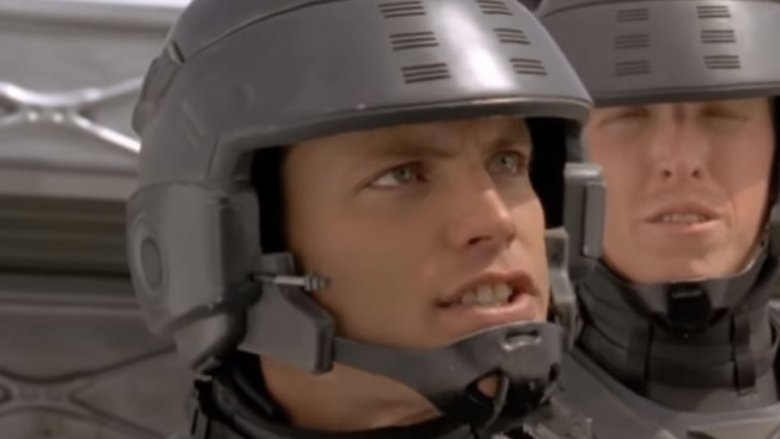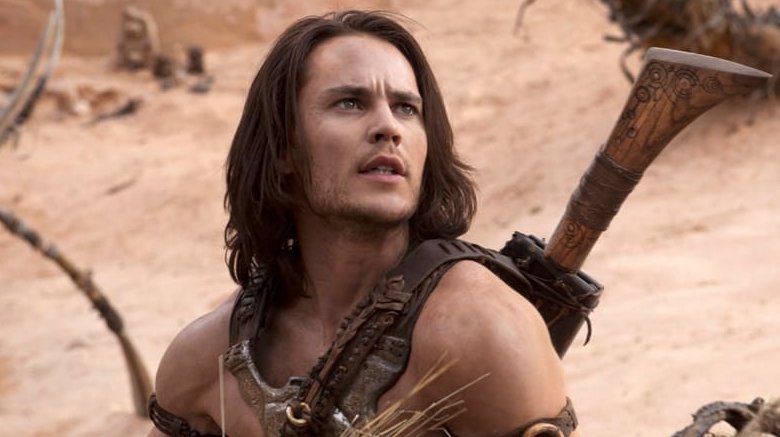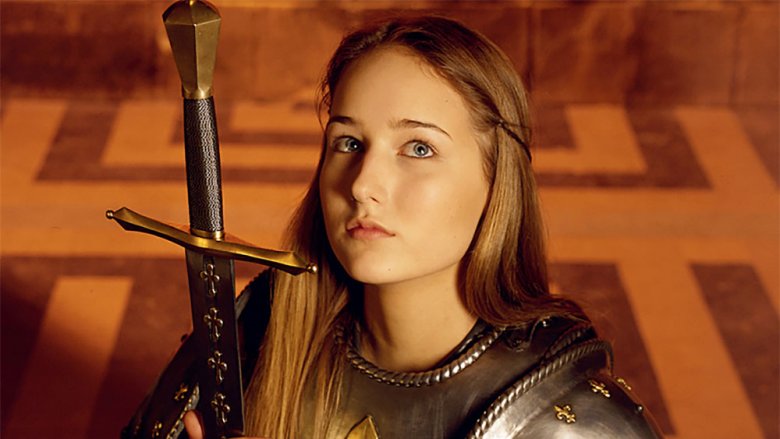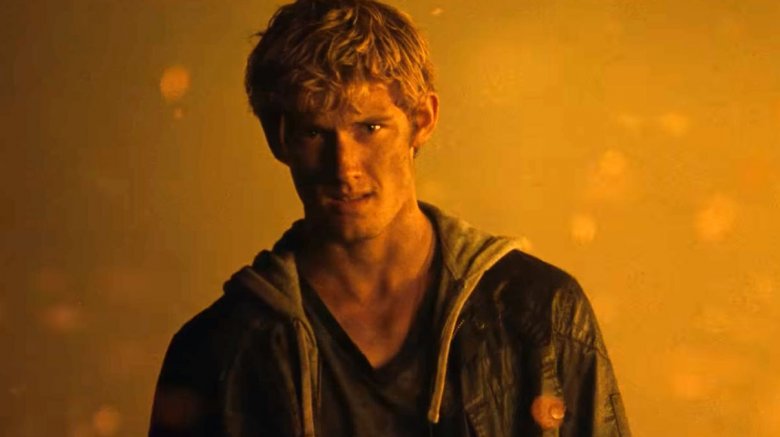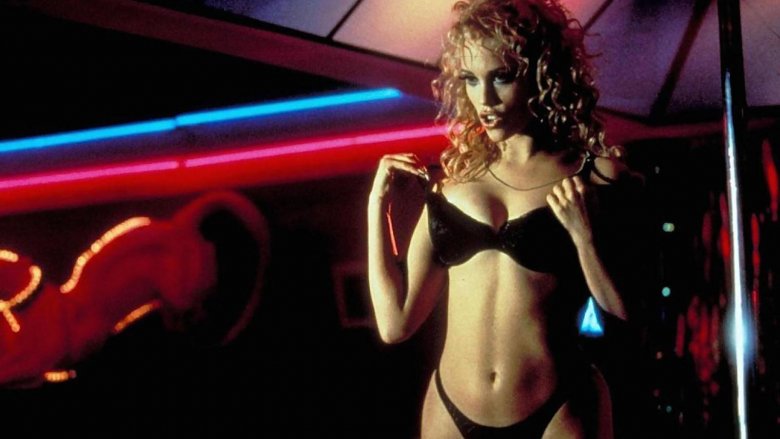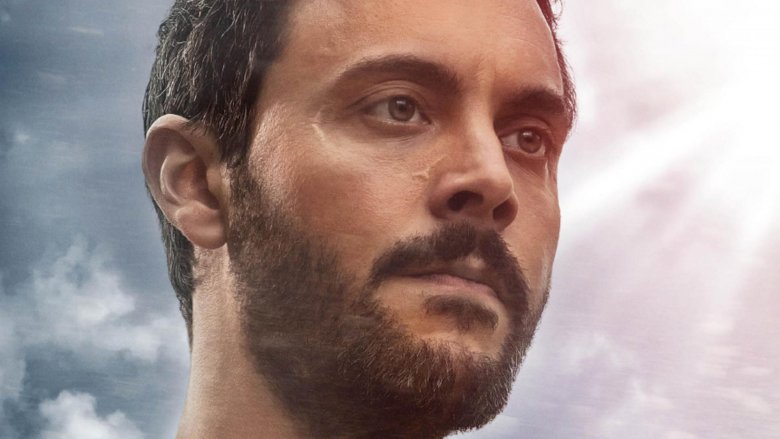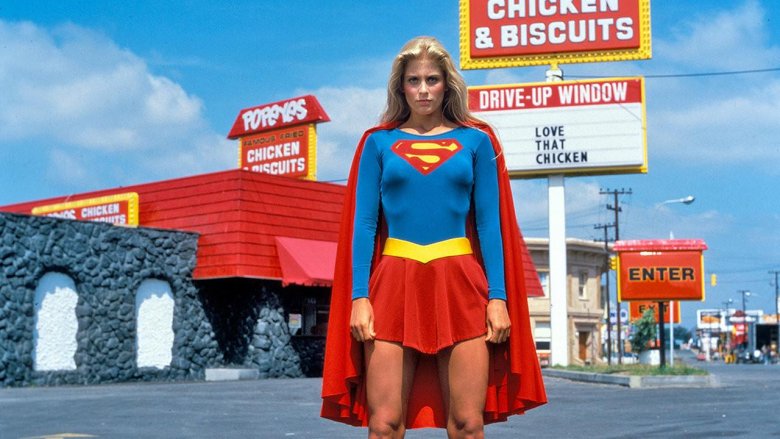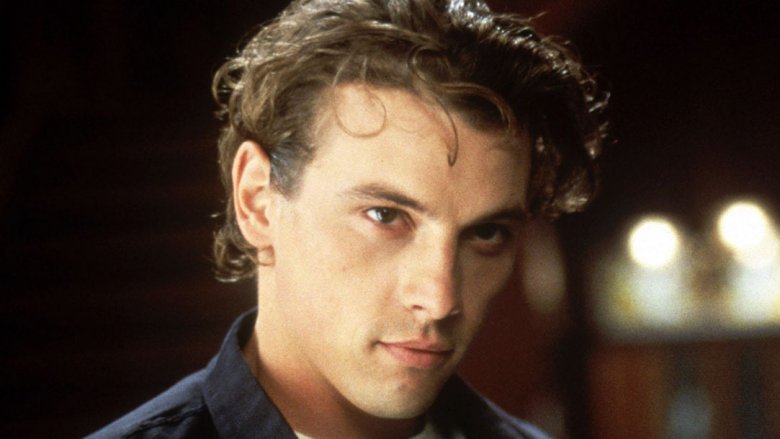Roles That Were Supposed To Be These Actors' Big Breaks
Many actors work for years before they find the role that catapults them to superstardom—and for many actors, that search continued long after they landed what looked like the gig of a lifetime. These actors all thought they'd lucked into something special—but once the movie came out, it ended up being just a regular old gig, if not something worse.
In the best cases, these actors managed to overcome the disappointment and forge a solid career. Not everyone was so lucky. It just goes to show that the only certainty in Hollywood is that nothing is certain—and what looks like it should be a "big break" is often anything but.
Brandon Routh — Superman (Superman Returns)
It's hard to think of a role bigger than Superman. He's not just the first—and, according to British fans, the best—superhero. He's a pop culture icon. His red and yellow logo is the second-most recognized symbol in the world, topped only by Christianity's cross. Popular words in the English language—bizarro, brainiac, and others—originated in Superman comics. To the modern eye, the blue boy scout might look a little old-fashioned, but 80 years after his first appearance, he's still a very, very big deal.
And so, when Superman 5 was scuttled (first by Lois and Clark: The New Adventures of Superman, and later by Christopher Reeve's debilitating accident), there were some big red boots to fill. At various points, Nic Cage, Josh Hartnett, and Brendan Fraser were all considered for the role, but when Warner Bros. brought X-Men director Bryan Singer on board to helm Superman Returns, the filmmaker decided to go with an unknown. After all, Reeve's turn as the Last Son of Krypton made him an international superstar. Who's to say that lightning couldn't strike twice?
That's how Brandon Routh ended up with the role, although things didn't quite go according to plan. Critics like Roger Ebert weren't impressed with his performance, and Superman Returns didn't perform quite as well as Warner Bros. would've liked at the box office. The sequel was eventually scrapped. In the aftermath, Routh's career floundered, although his story does have a happy ending: after stealing scenes in small TV and film roles, Routh landed the part of another DC superhero, Ray "The Atom" Palmer, on the CW's Legends of Tomorrow, where his natural charm and sense of humor make him a key member of the cast.
Sam Worthington — Jake Sully (Avatar)
In 2006, nine years after Titanic became the highest-grossing movie ever made, James Cameron announced his next project: Avatar, a big-budget, 3D, special effects-driven extravaganza featuring a cast made up largely of computer-generated characters and a setting lightyears away from Earth. To bring his vision to life, Cameron needed $237 million, top of the line digital effects studios, and a perfect leading man: someone who was "completely authentic and direct," as well as more or less unknown. Big movie stars cost money, after all, and Avatar's budget was already huge.
Cameron cast Sam Worthington, an Australian actor who was living in his car when he landed the role of Jake Sully, Avatar's paraplegic lead. The director's gamble paid off, too—Avatar went on to make $2.7 billion, topping even Titanic's massive take. For a while, it looked like Worthington's ship had arrived: before Avatar debuted, Worthington landed a part in Terminator: Salvation thanks to Cameron's recommendation, and followed that up with the lead in Clash of the Titans.
And then...nothing. Avatar came and went, and while it made a ton of cash, it hasn't become a cultural touchstone like many of Cameron's other films. Meanwhile, Worthington's only notable role in recent years (aside from a return as Perseus in the critically reviled Clash of the Titans sequel, Wrath of the Titans) has been a supporting part in Mel Gibson's Hacksaw Ridge. Of course, there's still hope for the actor: Worthington will return for Avatar 2 and 3, which are scheduled to come out in 2020 and 2021, respectively. Who knows? Maybe the second (or third) time will be the charm.
Hayden Christensen — Anakin Skywalker (Star Wars)
George Lucas and his casting director, Robin Gurland, looked at almost 1,500 candidates during their search for the perfect Anakin Skywalker, the young Jedi knight who'd go on to become the villainous Darth Vader. In Hayden Christensen, they found him. As soon as Christensen walked in the door, Gurland insisted she knew he was the chosen one.
When Christensen landed the role of the future Sith Lord, he was a relatively unknown 19-year-old, but he wouldn't stay that way. After all, Anakin Skywalker was one of the biggest parts in Hollywood history, and the Star Wars adventure would ensure that Christensen became a household name. But while Christensen is a fine actor (he was nominated for multiple awards for 2001's Life as a House), he had little chemistry with his onscreen girlfriend Natalie Portman, and he couldn't salvage Lucas' trite and wooden dialogue. Attack of the Clones and Revenge of the Sith did just fine at the box office—they're still Star Wars, after all—but the poor critical reception didn't do Christensen any favors.
In fact, after a few post-Star Wars projects, Christensen took a break from acting, disappearing from Hollywood for five years. "Star Wars... provided all these opportunities and gave me a career, but it all kind of felt a little too handed to me," Christensen told the Los Angeles Times. Of course, his two post-return projects, 90 Minutes in Heaven and First Kill, failed to make much of an impression, but Christensen wouldn't have it any other way. "So be it," he shrugged. "If I can come back... and claw my way back in, then maybe I'll feel like I earned it."
Casper van Dien — Johnny Rico (Starship Troopers)
Before his breakout role in Paul Verhoeven's sci-fi splatterfest Starship Troopers, Casper van Dien was best known for B-movies like Beastmaster III: The Eye of Braxus and guest roles on various television shows. Years later, he's doing pretty much the same thing. While van Dien had a major supporting role in Tim Burton's Sleepy Hollow, he's spent most of his post-Starship days appearing in TV movies with titles like The Dog Who Saved Christmas Vacation and Sharktopus vs. Whalewolf.
It's not his fault. Starship Troopers is a bizarre film, and on release, audiences and critics alike didn't really get it. People went into the theater expecting a straight-forward action movie, and instead got a satirical deconstruction of the American media, unchecked patriotism, and the military-industrial complex. In hindsight, many critics argue that Troopers' message might've been too subtle for most viewers, who van Dien says incorrectly dismissed the movie as a "a pro-fascist propaganda pro-war film," instead of, y'know, the exact opposite.
Whether that's true or not, van Dien suffered by association. For years, he's said, people couldn't separate him from Starship Troopers. "People saw me as this character ... I probably would have done whatever I could to change that," van Dien told The Daily Beast. At least van Dien doesn't seem to hold any grudges: not only did he return for Starship Troopers 3, a direct-to-video sequel, but in 2017 he executive produced Starship Troopers: Traitor of Mars, an anime-inspired spinoff.
Taylor Kitsch — John Carter of Mars (John Carter)
Hollywood tried repeatedly to turn Taylor Kitsch into a superstar, and why not? From the looks of things, he's got the tools he needs to succeed. According to firsthand accounts, he's just as charming as he is handsome. As Friday Night Lights' lovable bad boy Tim Riggins, Kitsch proved he has the chops to carry dramatic and comedic scenes. By all appearances, he's the complete package.
And yet, Kitsch failed to break through as the card-slinging mutant Gambit in X-Men Origins: Wolverine. Battleship, based on the popular board game, failed to use his talents in any significant way. Worst of all, Kitsch's biggest movie to date, the planet-hopping adventure John Carter, became one of the biggest box-office bombs of all time thanks largely to a disastrous marketing campaign. That's a shame. John Carter isn't a perfect movie, but it's a fun one. It should've catapulted Kitsch into superstardom—and it probably would've, if anyone had seen it.
In the aftermath, Kitsch turned towards indie movies and prestige projects, although he's claimed that John Carter's poor reception had little to do with that. In 2014, he appeared in Ryan Murphy's award-winning TV film The Normal Heart, and later landed a much sought-after role in the second season of HBO's True Detective; more recently, he signed on to play doomed real-life cult leader David Koresh in the Paramount Network limited TV series Waco. Still, after John Carter, his hopes of becoming a top-tier Hollywood action star are probably over. As all the Riggins fans out there will tell you, that's a darn shame.
Leelee Sobieski — Joan d'Arc (Joan of Arc)
Leelee Sobieski was only 15 in 1999, when she starred in the critically acclaimed CBS miniseries Joan of Arc. Not that the young saint was Sobieski's first role, of course: she'd previously starred alongside Drew Barrymore in Never Been Kissed, and appeared in the asteroid disaster flick Deep Impact. But Joan of Arc proved Sobieski was a force to be reckoned with as she held her own onscreen against veteran actors like Powers Boothe, Shirley MacLaine, and Peter O'Toole—and scored Golden Globe and Emmy nominations for her efforts.
After that kind of showing, you'd expect Sobieski to become a Hollywood mainstay, and for a few years things seemed to be on track. Here on Earth, a romantic drama co-starring Chris Klein and Josh Hartnett, was panned by critics, but secured Sobieski a Teen Choice Award nomination, while her role in the TV miniseries Uprising resulted in a another Golden Globe nod.
The momentum didn't last, and before long, it became clear that Joan of Arc was the highlight of her career, not the beginning. She started appearing in direct-to-video thrillers like Night Train and schlocky features like Nic Cage's infamous The Wicker Man (you know, the one with the bees). Parts in the critically reviled Al Pacino thriller 88 Minutes and In the Name of the King: A Dungeon Siege Tale earned Sobieski Golden Razzie nominations for Worst Supporting Actress. Eventually, Leelee gave up show business entirely, devoting her time to her children and to painting. Reportedly, she's never been happier.
Alex Pettyfer — John (I Am Number Four)
Before he appeared in the young adult adaptation I Am Number Four, Alex Pettyfer was no stranger to show business. He'd been a model for a number of years (allegedly, Ralph Lauren tried to hire him at age eight), and earned a Young Artist Award nomination for his outing as a teenage spy in Stormbreaker. With the charisma and the looks down, Pettyfer simply needed a franchise to push him over the edge and make him a full-fledged teen idol.
From that perspective, I Am Number Four, which chronicles the adventures of a group of refugee aliens on Earth, seemed like the perfect fit. Too bad the movie kind of stinks. Critics didn't like I Am Number Four's contrived characters and recycled plot, and some called out Pettyfer as a pretty face who couldn't really act—at best, Variety argued, he's "dully likable." To put it another way, when a movie's most positive review compares it to "a good episode of Smallville," you know it's got some problems.
Unfortunately, Pettyfer's other would-be franchise starter, the Beauty and the Beast riff Beastly, didn't do much better, and aside from a well-received appearance in Magic Mike, Pettyfer's career looks like it's on a downswing. He was reportedly offered the male lead in Screen Gems' adaptation of The Mortal Instruments, another YA franchise, but Jamie Campbell Bower ended up playing the role instead. Director Les Daniels wanted Pettyfer for his thriller The Paperboy, but Zac Efron ended up with the part. Let's hope things pick up for Pettyfer soon: the young man dropped out of school in 2006 to pursue acting full time, and those good looks aren't going to last forever.
Elizabeth Berkley — Nomi Malone (Showgirls)
Casting against type doesn't always work out. Just ask Elizabeth Berkley. After playing the neurotic, nerdy feminist Jessie Spano on Saved by the Bell, Berkley signed on as the lead in Showgirls, director Paul Verhoeven's campy, nudity-filled thriller. It's easy to see why. Former child stars often take on edgy, mature roles in order to shed their wholesome images, and at the time Verhoeven was riding high on the back-to-back-to-back success of Robocop, Total Recall, and Basic Instinct.
But it didn't work. At all. Oh, as prostitute-turned-dancer Nomi Malone, Berkley successfully banished all associations with Saved by the Bell's schmaltzy, family-friendly vibe from viewers' minds. She also almost ruined her career. Critics turned on Showgirls immediately—the film went on to be nominated for 11 Golden Raspberry Awards, a record that still stands today, and flopped at the box office, thanks largely to its NC-17 rating. Berkley didn't escape unscathed, either. In the aftermath, Berkley's agent dropped her, and others refused to take her calls.
Berkley toughed it out and eventually established a career as a working actress, but she never fully escaped Showgirls' stench. Verhoeven blames himself. "She did exactly what we wanted and what we thought would be good. And apparently we failed," the director said. "I never accounted that she would be put in such a bad position and I feel terrible about it."
Jack Huston — Judah Ben-Hur (Ben-Hur)
Anybody who's seen Jack Huston in Boardwalk Empire as disfigured World War I veteran and mob assassin Richard Harrow knows he's got what it takes to be a star. He's a good-looking guy (at least when he's not hiding behind Harrow's tin mask), he's got the acting skills to match, and he's a legitimate badass.
Seriously. Shortly after casting Huston as the title character in Ben-Hur, director Timur Bekmambetov told USA Today, "I wouldn't be surprised if some of Jack's many famous ancestors took part in an actual fight between Romans and Judaeans." (Huston's grandfather is legendary director John Huston, of course.) Huston, already an accomplished horseback rider, did his own stunts in the film's iconic chariot race, spending three months training for the scene, and doing some of the most dangerous set pieces—like getting dragged around the coliseum—on his own.
That's dedication. Too bad it didn't pay off. Ben-Hur went on to lose $120 million in theaters, making it one of 2016's biggest flops. Huston acquitted himself just fine—critics seemed more focused on Bakmambetov's directing than any individual performance—although he didn't quite meet the bar set by Charlton Heston in 1959. Huston knew the risk going in, of course, and there's still plenty of time for him to become a household name. Just don't expect Ben-Hur to do much of the heavy lifting.
Helen Slater — Kara Zor-El (Supergirl)
Helen Slater had never been in a movie before she headlined Supergirl. It shouldn't have mattered. With blonde hair and bright blue eyes, Slater looked like Superman's cousin, Kara Zor-El, brought to life, and besides, nobody had ever heard of Christopher Reeve when Richard Donner cast him as Superman, and that worked out fine. What could go wrong?
A lot, as it turns out. Slater earned many accolades for her turn as the Girl of Steel—Roger Ebert said she had "the kind of freshness, good health, high spirits, and pluck that would be just right for the character" and called her "the best thing in the film"—but the rest of the movie never quite caught up. Supergirl's name stars, Peter O'Toole and Faye Dunaway, were savaged by reviewers, and the film's intentionally campy tone turned off all but the most diehard fans. In the aftermath, Supergirl's producers sold the rights to the entire Superman franchise, while DC Comics killed the Maid of Might in the comics after the movie failed.
Despite the positive reception to Slater's performance, she career never flew quite as high again—but she never left Supergirl behind, either. Decades later, Slater appeared on the television show Smallville, which told the story of a teenage Superman-in-training, as Lara, Kal-El's biological mother. On the CW's Supergirl, she later landed a recurring role as Eliza Danvers, Kara's adopted mother. She's also voiced Martha Kent, Superman's human mom, in the animated DC Super Hero Girls specials, and played a different DC Comics femme fatale, Talia al Ghul, in Batman: The Animated Series.
Skeet Ulrich — Billy Loomis (Scream)
If you weren't a horror buff in the mid-'90s, you'll never understand just how big of a deal Scream was. It didn't just affectionately skew slasher flicks, it reinvented them entirely, imbuing the aging genre with playfulness and a much-needed sense of humor.
Scream also did wonders for its cast. It transformed Matthew Lillard, Rose McGowan, and Jamie Kennedy into stars. It helped further Drew Barrymore's comeback, and made David Arquette a household name. Neve Campbell and Courteney Cox were already name actors when they appeared in Scream thanks to Party of Five and Friends, respectively, but it helped prove that they were more than one-trick ponies.
And yet Skeet Ulrich, who played hunky movie buff (and masked killer) Billy Loomis in the movie, never quite managed to capitalize on the movie's popularity. Blame bad luck. After Scream, Ulrich was cast in James L. Brooks' Oscar-winning comedy As Good as It Gets, but ended up getting cut out of most of the film. He appeared in Ang Lee's Ride with the Devil, but despite the director's pedigree, the movie only screened in a handful of theaters. These days, Ulrich appears as Jughead Jones' dad on the CW's Riverdale. That's not a bad gig, but from a Scream alumnus, we expect more—see, for example, pretty much everyone else.
